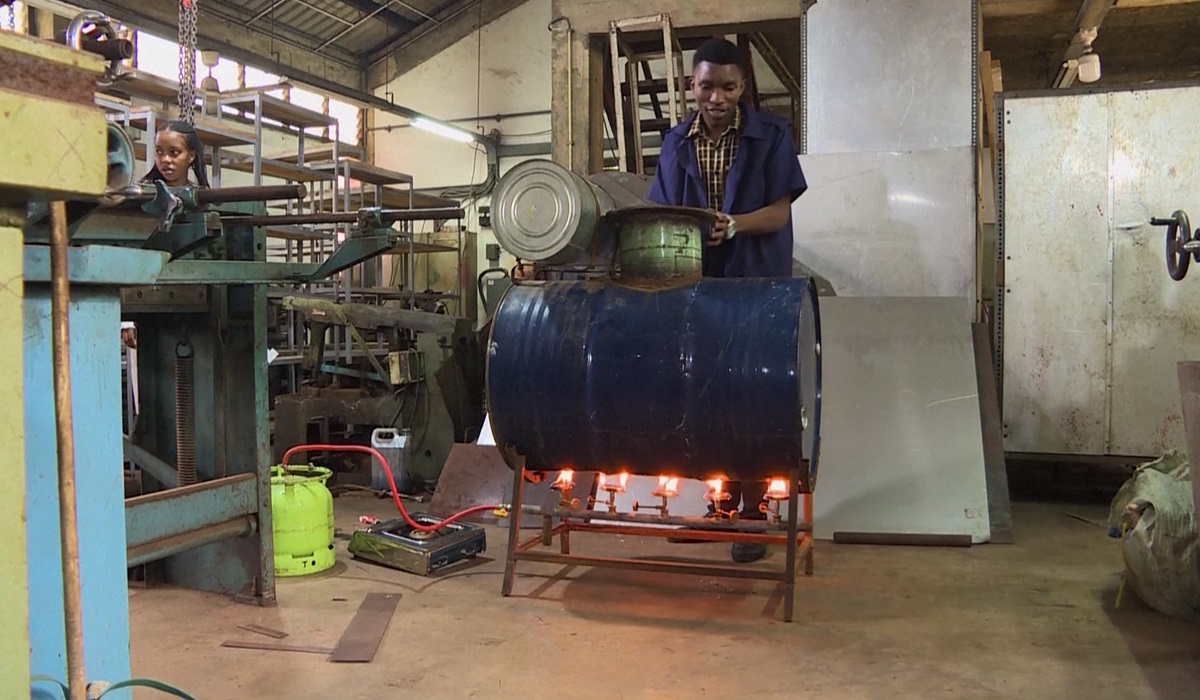Tanzanian students at the University of Dar es Salaam have devised an innovative solution to address plastic waste by creating the Nishati Mix machine. This invention can convert plastic and organic waste into usable energy, presenting a promising initiative to combat pollution and reduce greenhouse gas emissions.
The mastermind behind this groundbreaking machine is Leatus Felix, whose efforts were recognized with a national university prize earlier this year. The Nishati Mix cuts waste plastic into small blocks and then liquefies it. The resulting liquid is filtered within the machine, with a portion used to run the engine for electricity, while the rest enters the atomization chamber to produce cooking gas.
A key motivation for the project is the pressing issue of inadequate electricity access in Africa, affecting approximately 570 million people. Most Africans resort to firewood, charcoal, or kerosene for cooking, contributing to environmental degradation. The Nishati Mix aims to alleviate these challenges by providing clean, sustainable electricity and cooking energy alternatives.
A significant revelation is that a mere one-kilogram block of plastic waste can produce 700 millilitres of liquid plastic fuel, sufficient to power the Nishati Mix engine for 2.5 hours. Within this timeframe, the engine generates enough energy to meet the basic electricity needs of a three-bedroom house.
While the Nishati Mix represents a commendable initiative, the broader context reveals innovators’ challenges in the renewable energy sector. High costs, particularly for integrating multiple systems and spare parts, pose obstacles. This is exacerbated by the financial constraints many youth involved in such projects face. Calls are made to the government to consider reducing taxes on parts used in renewable energy products to facilitate progress in this sector.
Undeterred by these challenges, the Nishati Mix team has set its sights beyond Tanzania. Following a product showcase tour in South Africa, Nigeria, Kenya, and Rwanda, there is growing interest in the innovation. Leatus Felix expresses optimism about the potential expansion of the business to new markets.
Plastic waste is a global predicament and regional solutions like the Nishati Mix engine present opportunities for communities to access reliable electricity in an environmentally friendly manner. The students’ innovative approach addresses the issue of plastic waste and contributes to a more sustainable and greener future for Tanzania and beyond.









